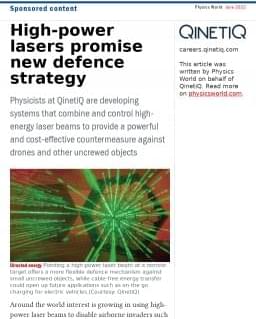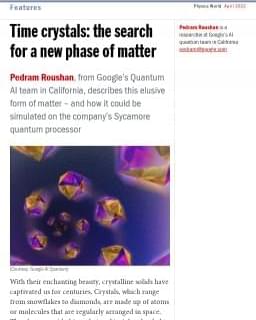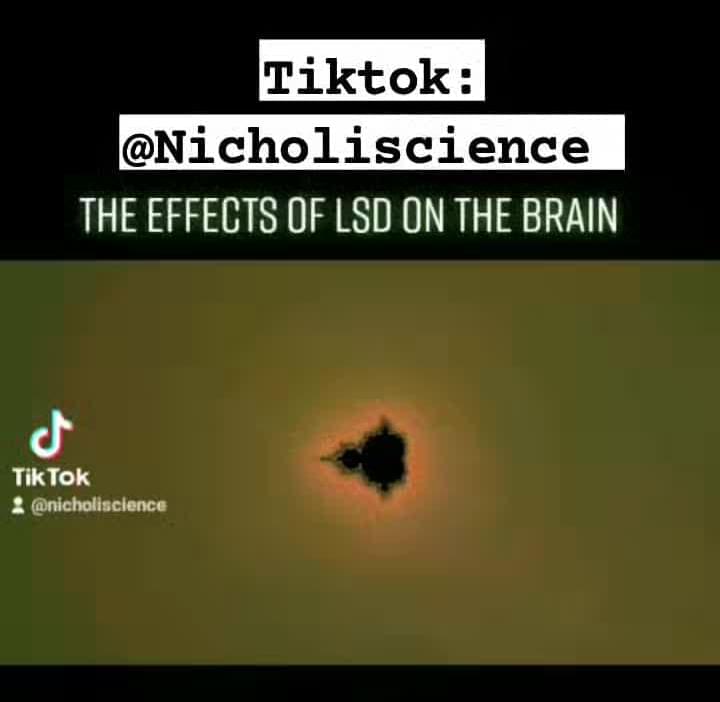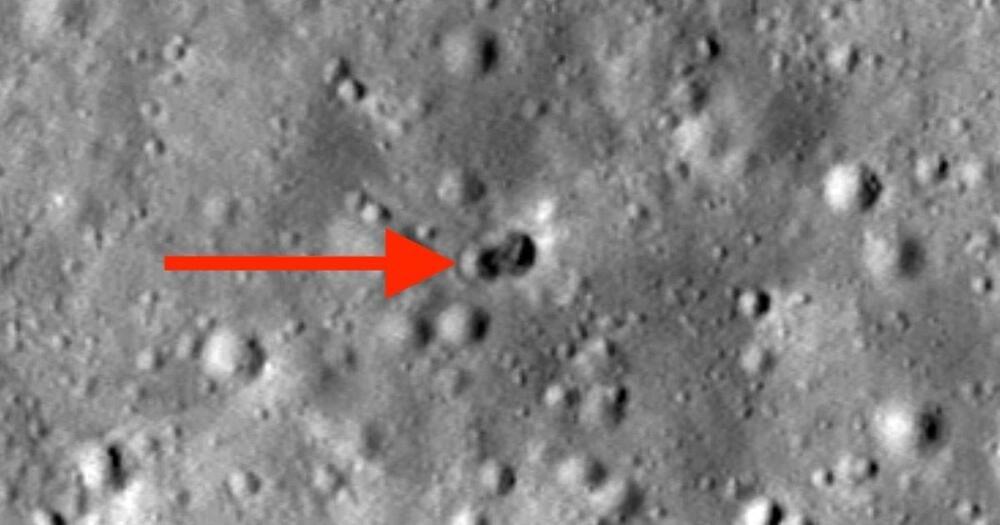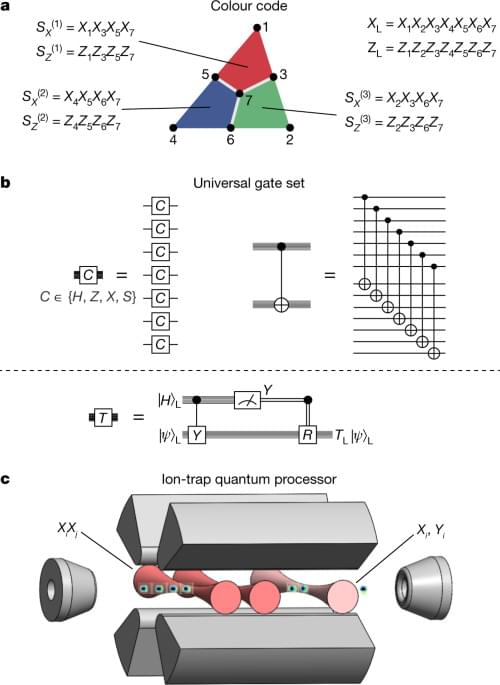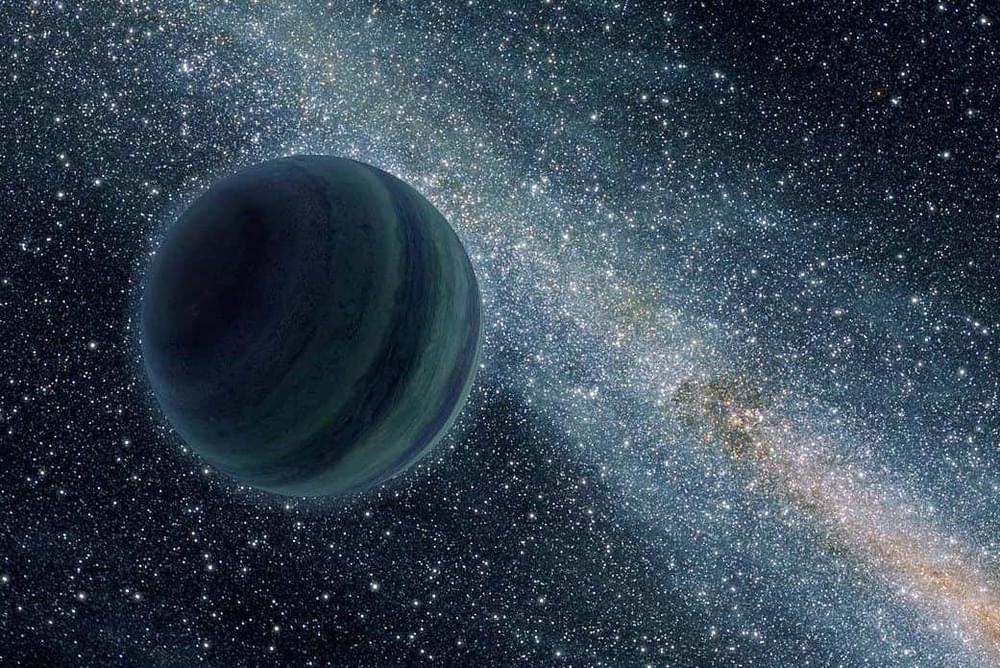Physicists at QinetiQ are developing systems that combine and control high-energy laser beams to provide a powerful and cost-effective countermeasure against drones and other uncrewed objects.
Around the world interest is growing in using high-power laser beams to disable airborne invaders such as drones and other uncrewed objects. These so-called directed-energy systems have the potential to damage or destroy small aerial devices at a fraction of the cost of launching conventional defence missiles or munitions. They have the added advantage that they can be reused many times to counter multiple attacks as well as the growing threat of drone swarms.
At QinetiQ, a UK-based technology company specializing in defence and security solutions, around 10 years of research effort into the physics underpinning these directed-energy systems has demonstrated enough potential to start building and testing practical prototypes. “We have taken a high-risk, high-reward approach to developing these systems,” says Richard Hoad, capability area lead for novel effectors and resilience at QinetiQ. “Our company and our customers in the defence sector have just significantly increased their investment to enable us to prove that our solution is as effective in a wide range of real environments as it is in testing.”
